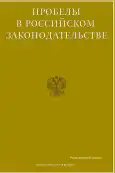Уголовно-правовая характеристика мошенничества, совершаемого с использованием информационно-телекомуникационных технологий
- Авторы: Коваленко Э.В.1
-
Учреждения:
- Северо-Кавказский институт повышения квалификации (филиал) Краснодарского университета МВД России
- Выпуск: Том 15, № 5 (2022)
- Страницы: 200-204
- Раздел: Статьи
- URL: https://journals.eco-vector.com/2072-3164/article/view/531687
- ID: 531687
Цитировать
Аннотация
Современный этап развития науки и техники задали одну из ключевых задач криминалистической науки - цифровизацию преступности. Цифровизация экономики обусловила удешевление средств автоматизированной обработки информации вкупе с ростом числа пользователей возможностями информационно-телекоммуникационной среды и открыла новые возможности для представителей преступного мира. В число наиболее совершаемых преступных деяний попали мошенничества с использованием банковских карт, средств мобильной связи и компьютерной техники. Мошенничество в сфере компьютерных технологий представляет собой любое по характеру действия, связанное с изменением компьютерных данных, либо вмешательство в функционирование компьютерной системы, влекущее за собой лишение другого лица собственности. Отсюда, основным непосредственным объектом мошенничества выступают охраняемые уголовным законом общественные отношения в сфере собственности, а к предметам посягательства следует отнести имущество, в том числе безналичные и электронные деньги. В науке уголовного права мошенничество относится к числу, так называемых, традиционных составов преступлений, которые отличаются достаточной изученностью. Обуславливая необходимость совершенствования мер по выявлению, раскрытию и расследованию преступлений, совершенных с использованием информационно-телекоммуникационной среды следует отметить рост их количества, а вместе с тем, становятся более изощренными методы, способы и средства их совершения. Использование возможностей информационно-телекоммуникационной среды в преступных целях является серьезным вызовом для правоохранительных и законодательных органов. Известно, что научно-технический прогресс сопровождается новыми угрозами, связанными с кибепреступностью, которая обладает своей спецификой, имеет транснациональный масштаб, постоянно изменяет свои формы, отличается высокой латентностью и, как следствие, практически не поддается имеющимся мерам противодействия. В целях осуществления результативного предупреждения мошенничества, совершаемого с использованием информационно-телекоммуникационной среды, необходимо эффективное применение уголовно-правовых норм.
Ключевые слова
Полный текст
Об авторах
Эдуард Витальевич Коваленко
Северо-Кавказский институт повышения квалификации (филиал) Краснодарского университета МВД России
Email: kovalenko0007@inbox.ru
старший лейтенант полиции, преподаватель кафедры организации правоохранительной деятельности Нальчик, КБР, Россия
Список литературы
- Тарчоков Б.А., Шогенов Т.М., Бураева Л.А. Актуальные проблемы роста киберпреступности в банковской сфере // В сборнике: Лучшая научно-исследовательская работа 2021. Cборник статей XXX Международного научно-исследовательского конкурса. Пенза, 2021. С. 70-72.
- Ксенофонтов А.Э. Мошенничество в сети интернет, совершаемое с использованием технических средств // В сборнике: Молодежь. Наука. Общество. Всероссийская научно-практическая междисциплинарная конференция; электронный сборник студенческих работ. 2018. С. 775-777.
- Лаптева А.Ю., Микацадзе Ю.А., Шулежко О.В. Мошенничество в сети интернет: известные схемы и способы борьбы с ними // В сборнике: Информационные технологии в образовании. Материалы Международной заочной научно-практической конференции. Ульяновский государственный педагогический университет имени И.Н. Ульянова. 2015. С. 79-85.
- Александров П.О. Противодействие кибермошенничеству в сети интернет // В сборнике: Сборник материалов IV всероссийской научно-практической конференции магистрантов. Сборник научных трудов. 2019. С. 62-71.
- Шишонкова Н.В. Интернет-мошенничество: проблема, противодействие // В сборнике: Юность. Наука. Культура. Материалы VII Всероссийской научно-практической конференции. Средне-Волжский институт (филиал) ВГУЮ (РПА Минюста России). 2020. С. 88-91.
- Гармышев Я.В. Квалификация мошенничества с использованием компьютерных технологий. Вопросы законодательства и правоприменительной практики // Закон и право. 2021. №2. С. 76-82.
- Гармышев Я.В. Квалификация мошенничества с использованием компьютерных технологий. Вопросы законодательства и правоприменительной практики // Закон и право. 2021. №2. С. 76-82.
- Петрякова Л.А. Проблемы квалификации мошенничества в банковской сфере // Сибирский юридический вестник. 2020. № 3 (90). С. 80-84.
Дополнительные файлы








